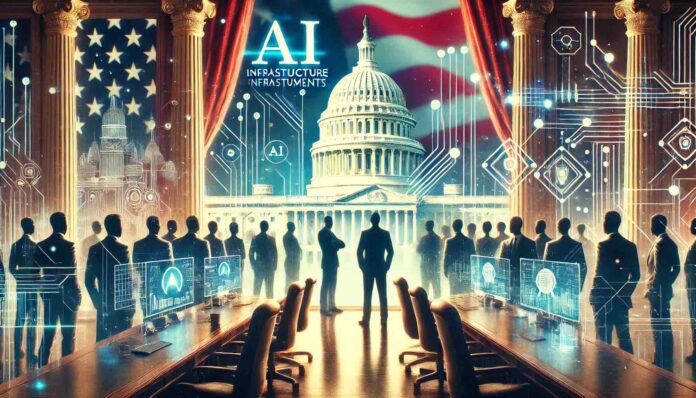The White House has unveiled a national strategy to boost artificial intelligence development, aiming to secure global leadership in the field.
The plan focuses on expanding infrastructure, reducing regulations, and encouraging AI adoption across industries. It includes a new website, AI.gov, which outlines steps to increase public and private investment, support open-source models, and train the next generation of AI professionals.
President Donald Trump is expected to sign executive orders related to the policy later today. One order would address political bias in AI models, while another would support exports of AI hardware and software.
The administration is also asking federal agencies to review and remove existing regulations that may hinder AI development.
The plan includes a three-pillar framework: supporting American workers, ensuring free speech in AI systems, and protecting U.S. technology from misuse or theft. It encourages AI companies to operate without ideological goals and focuses on building domestic capacity in data centers and energy infrastructure.
Trump cancelled a previous Biden-era executive order that required companies to report advanced AI projects to the government. Officials said the old policy discouraged innovation and added unnecessary oversight.
OpenAI, Oracle, SoftBank, and MGX have committed to investing $500 billion in U.S. AI infrastructure through the Stargate project. The companies plan to add 4.5 gigawatts of data center capacity, with operations expected to create over 100,000 jobs in various sectors.
Vice President JD Vance and other administration leaders have made AI a central focus since taking office. Trump previously described AI as the “oil of the future” and stressed the need for the U.S. to outpace China and other nations in technological advancement.
The strategy also includes a Presidential AI Challenge to promote early education and interest in the field. Details about registration for the program will be announced soon.
The White House said the action plan was developed over 180 days with input from industry, academia, and civil society. It outlines more than 90 policy actions to support innovation, infrastructure, and international cooperation on AI.




